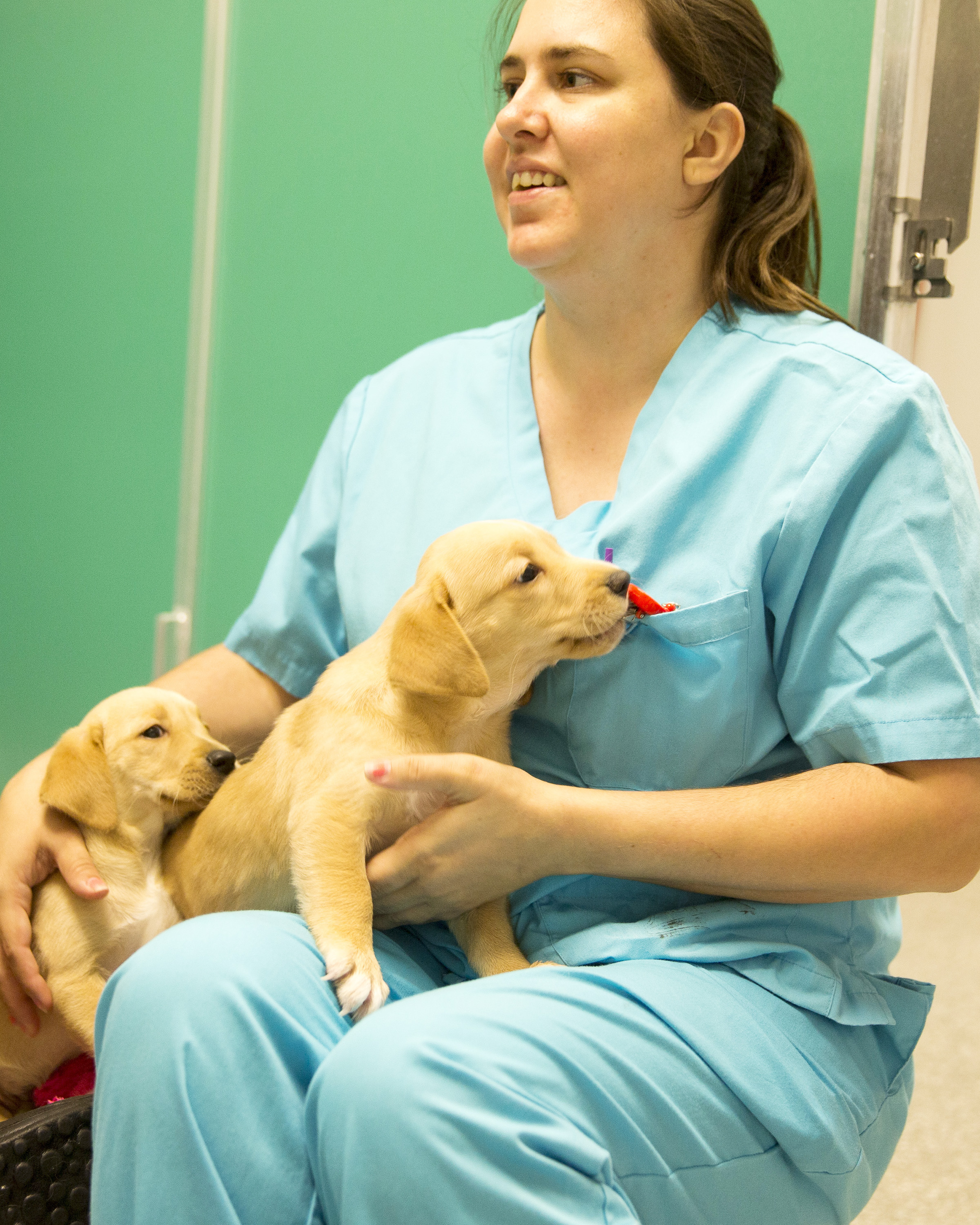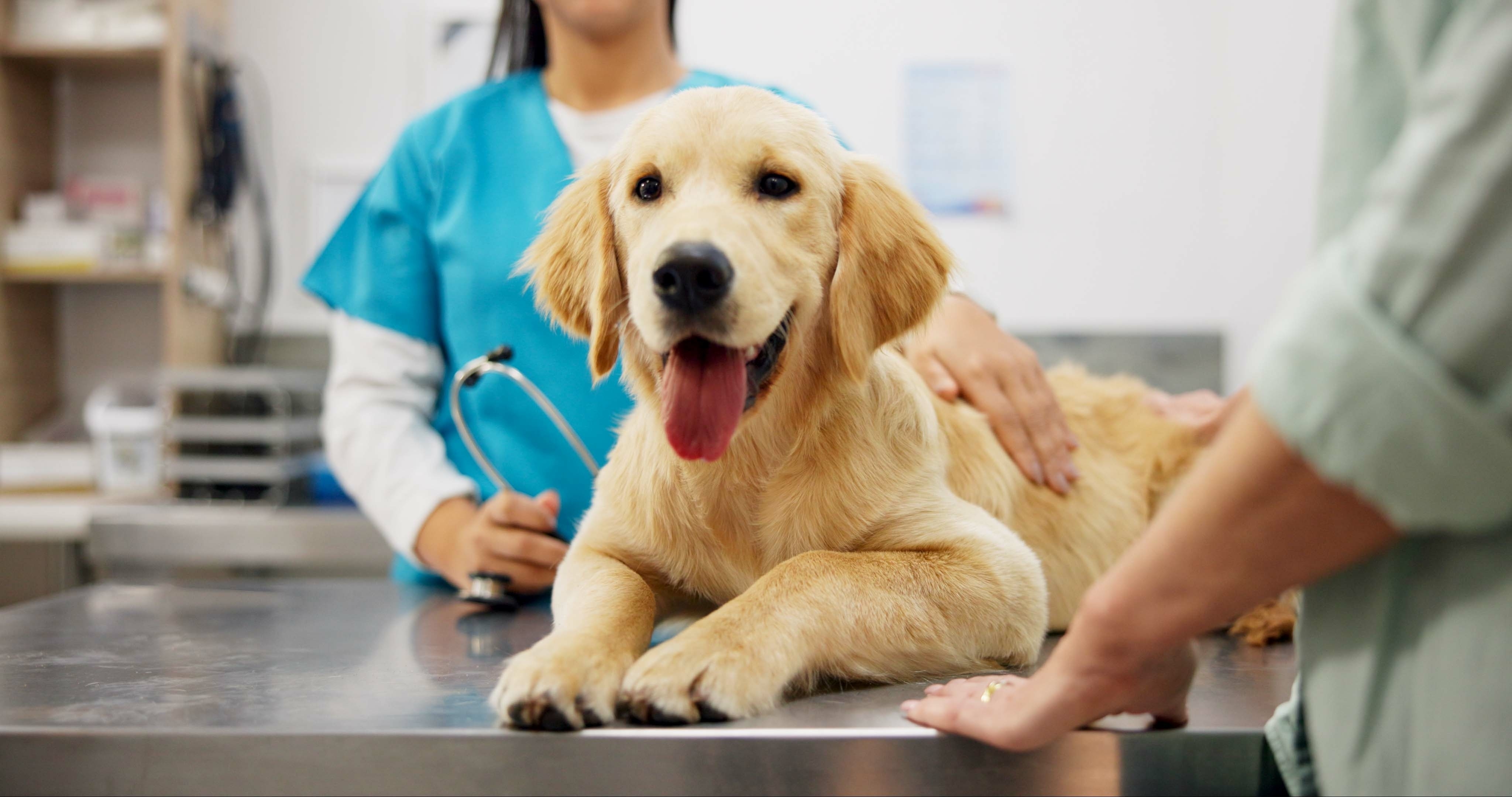
Species Highlight: Dogs
Dogs in research are cared for with deep compassion and strict oversight.
Dogs in Medical Research
Research in Dogs Keeps Humans and Dogs Safe
Dogs are an essential part of medical advancements. These amazing animals help ensure that new medicines are safe before they are given to humans and/or dogs in clinical trials.
Because dogs are biologically similar to humans, clinicians can spot potential side effects, especially in studies involving the immune system. By preventing negative effects from occurring in volunteers enrolled in clinical trials, dog research enhances safety for humans and other animals enrolled in these studies.
Research in dogs for people can also help dogs because we develop similar diseases. Since dogs and humans are genetically and biologically similar, many medications prescribed to us are also prescribed to our pets.


Dogs in Veterinary Research
Research in Dogs, for Dogs
Research in dogs, for dogs keeps our four-legged family members happy and healthy. For example, the prevention and treatment of prevalent—and sometimes severe—health issues such as heartworm, intestinal parasites, fleas, ticks, and mites were achieved through research in dogs.
The study of diseases and therapeutic interventions in dogs contributes to new veterinary treatments, helping pet dogs live longer, healthier lives.
Modern Medical Advancements Thanks to Dogs
Researchers strive to use rodents and fish first when developing new medicines. However many diseases that affect humans are uniquely present in dogs, meaning other animal models cannot provide the biological information we need to understand complex diseases.
Dogs account for less than 0.5% of mammals involved in research, but without them many medical advancements would not be possible.
Five recent medications approved by the Food and Drug Administration (FDA) for patients are now used to treat non-small cell lung cancer, itchiness in dogs, Post Partum Depression (PPD) in moms, cystic fibrosis in patients 6 years and older, and some types of brain cancer in children. These, and many others, were all made possible through research with dogs.


Dogs are Good Predictors for Human Health!
Dogs are good predictors for human health. Studies in dogs led to treatments for a wide array of diseases including,but not limited to, diabetes, heart disease, muscular dystrophy, and orthopedic injuries.
One particulary important aspect of dog research is their potential for developing cancer therapies. Dog and human lives are intertwined—we share the same food, sleeping spaces, and environmental exposures like air pollution and sun exposure. Because of this, humans and dogs often develop the same kinds of brain, lung, skin, and bone cancer. Studying the progression of the disease in dogs helps scientists and veterinarians develop treatments that could save both human and animal lives.
Understanding which new therapies are safe in dogs has led to medicines that now extend the life of people with Duchenne muscular dystrophy and other genetic diseases. Such advancements, called gene therapy and cell therapy, offer incredible hope for children and adults with these debilitating and life-threatening diseases.
Care and Oversight of Dogs in Research
Researchers Prioritize Animal Care to Ensure Their Welfare, Safety, and Good Science
All animals in medical research are treated with deep compassion and stringent oversight, which not only ensures their well-being but also drives good science.
Skilled veterinarians and dedicated animal care professionals provide around the clock care. Each person is committed to nurturing the well-being of every animal in their custody, understanding that compassionate care leads to more reliable and impactful scientific outcomes.
Animals involved in research are bred by specialized animal breeders. Specific breeds are important for certain kinds of studies. Every proposed study undergoes thorough ethical review, ensuring that research is conducted with purpose and consideration for animal welfare.
This ethical approach fosters an environment where animals are protected and respected as scientific advancements. The Animal Welfare Act, a federal law, provides the framework for regulatory compliance for the care and use of dogs in research.


3Rs in Research
Scientists always strive to Replace, Reduce and Refine animal studies whenever possible.
Replacement means testing potential treatments in silico (with computers) and in vitro (cell culture-based) systems, and even “organs on a chip,” featuring a microenvironment simulated from human or animal organ tissue. Animal studies are only conducted when there is no other way to understand the problem being explored.
Reduction in animal use means that the fewest number of animals are utilized to meet scientific objectives.
Refinement to the study means including all viable options to optimize animal welfare through the oversight, care, housing, and procedures, while still meeting the scientific objectives.
Eligible Research Dogs Are Adopted Out Whenever Possible
The care, socialization and training that dogs in research have received makes them wonderful candidates as family pets. After a study has been completed, thousands of dogs have been adopted to loving homes over the years, many going home with their caregivers.
This demonstrates our commitment to the responsible use of dogs in research, and the bond that those working with the dogs form.
Looking for more information about dogs in research? Check out our resources page.






